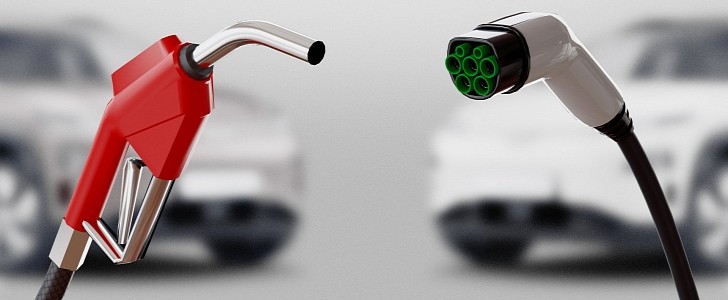We used to choose our cars based on their design, features, and reliability mostly but the steep increase in fuel prices has changed all that. According to a new study conducted by CarGurus in the UK, the number one factor that people consider when buying a new vehicle today is fuel consumption.
The high fuel prices have changed everything we knew and liked about cars. Forget about big engines and sporty performances. With current gas prices, every careless push of the accelerator pedal is as painful as cutting a toe to appease a barking dog. No wonder people change their behavior, and this starts with choosing their next ride.
According to a CarGurus study, 57% of UK car buyers consider fuel consumption the most important factor when considering their next vehicle purchase. Fuel consumption has relegated reliability (55%) to second on the list after seeing a huge jump from 47% before fuel price rises.
The economic factor keeps influencing people’s decisions even beyond that. The number three factor used to be the design/style of the car (30%), but this has fallen to 20%, being superseded by the road tax (25%). This used to be the sixth on the list when buying a new car.
People have even started to compromise on safety features just to make ends meet. Although the safety/NCAP rating has gone up one position to the fourth, its importance actually shrank from 22% to 21%. Almost a quarter (23%) of respondents indicated that they would have bought a more economical car if fuel had been as expensive as it is today and nearly one in ten (8%) said they would have either purchased an EV or nothing at all.
Even with their current vehicles, people started to drive less to save money. Nearly half (47%) said they were avoiding unnecessary car journeys, with 37% choosing to walk more often, 18% using public transport, and 12% cycling. In total, UK car owners are driving an average of 17.8 miles fewer per week than they were before the fuel price rises, the equivalent of removing 564-million miles worth of journeys or 86,809 cars from the UK’s roads.
According to a CarGurus study, 57% of UK car buyers consider fuel consumption the most important factor when considering their next vehicle purchase. Fuel consumption has relegated reliability (55%) to second on the list after seeing a huge jump from 47% before fuel price rises.
The economic factor keeps influencing people’s decisions even beyond that. The number three factor used to be the design/style of the car (30%), but this has fallen to 20%, being superseded by the road tax (25%). This used to be the sixth on the list when buying a new car.
People have even started to compromise on safety features just to make ends meet. Although the safety/NCAP rating has gone up one position to the fourth, its importance actually shrank from 22% to 21%. Almost a quarter (23%) of respondents indicated that they would have bought a more economical car if fuel had been as expensive as it is today and nearly one in ten (8%) said they would have either purchased an EV or nothing at all.
Even with their current vehicles, people started to drive less to save money. Nearly half (47%) said they were avoiding unnecessary car journeys, with 37% choosing to walk more often, 18% using public transport, and 12% cycling. In total, UK car owners are driving an average of 17.8 miles fewer per week than they were before the fuel price rises, the equivalent of removing 564-million miles worth of journeys or 86,809 cars from the UK’s roads.






